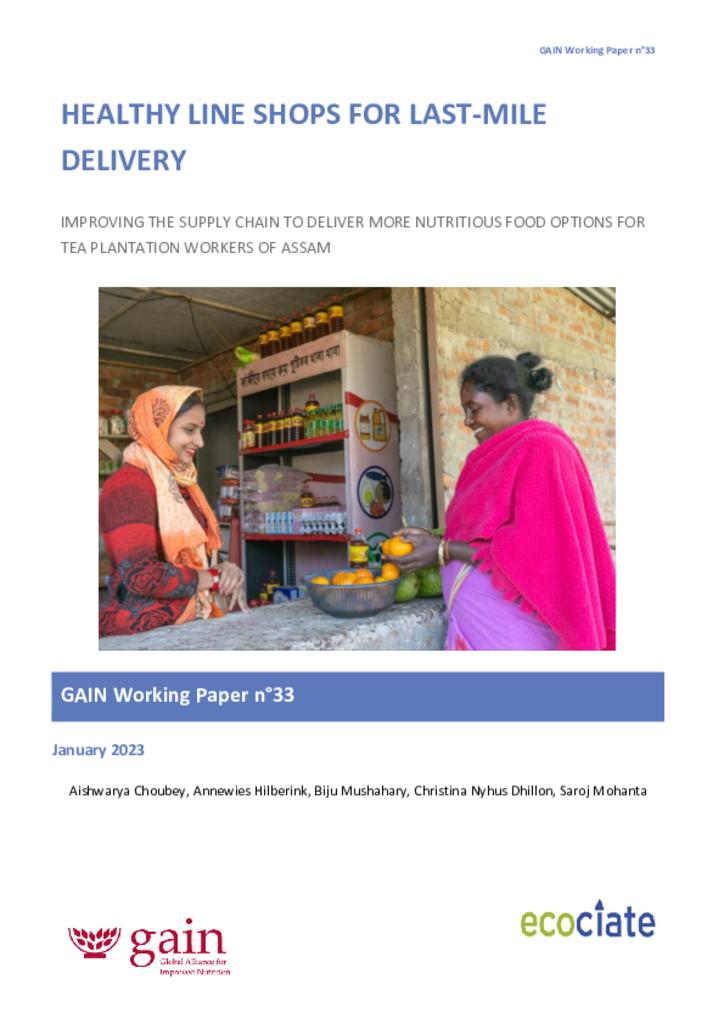Limited access to markets and poor market infrastructure are underlying factors that negatively impact nutrition outcomes for the rural poor in hard-to-reach areas, including communities working on tea estates in India. An innovative and sustainable market-based supply chain model was tested in Assam, India, to improve the nutrition of the tea estate communities.
This initiative worked through neighbourhood retail shops, referred to as Healthy Line Shops, to improve the last-mile reach of select nutritious foods, previously inaccessible to many households on tea estates. The pilot model was designed for 12 retail shops across four tea estates in 2020 and was scaled to 32 shops across eight estates in 2021.
This paper reviews how Healthy Line Shops – a market supply chain model – have been effective in increasing the supply of certain nutritious foods for a targeted population of lower-income consumers. Within two years, the model has become an opportunity for wholesalers, distributors, and shopkeepers to expand their business with low investments, demonstrating feasibility and viability. The findings indicate that the combination of an appropriate product basket and capacity building for shopkeepers on efficient trade practices has made a sustainable business model that enhances the accessibility and purchase of safe and nutritious foods among the tea estate communities.
This working paper describes the process of conceptualising the pilot intervention, then details the pilot intervention’s results and the lessons learned for other efforts to embed nutrition-sensitive innovations into last-mile supply chains in hard-to-reach places.
